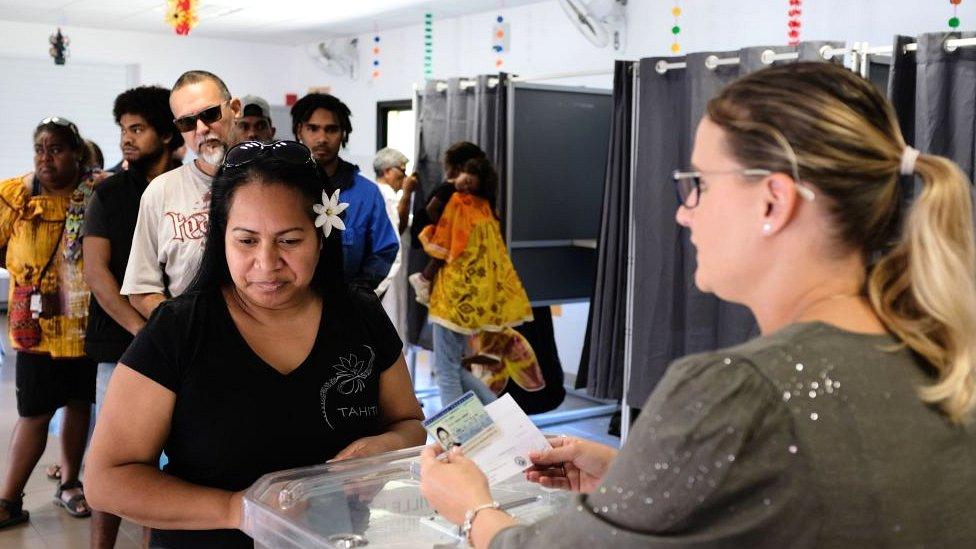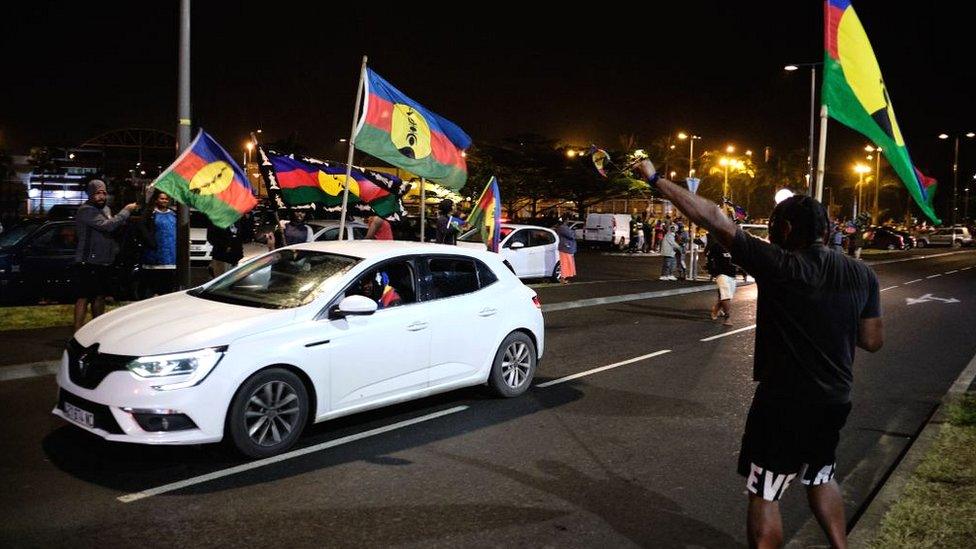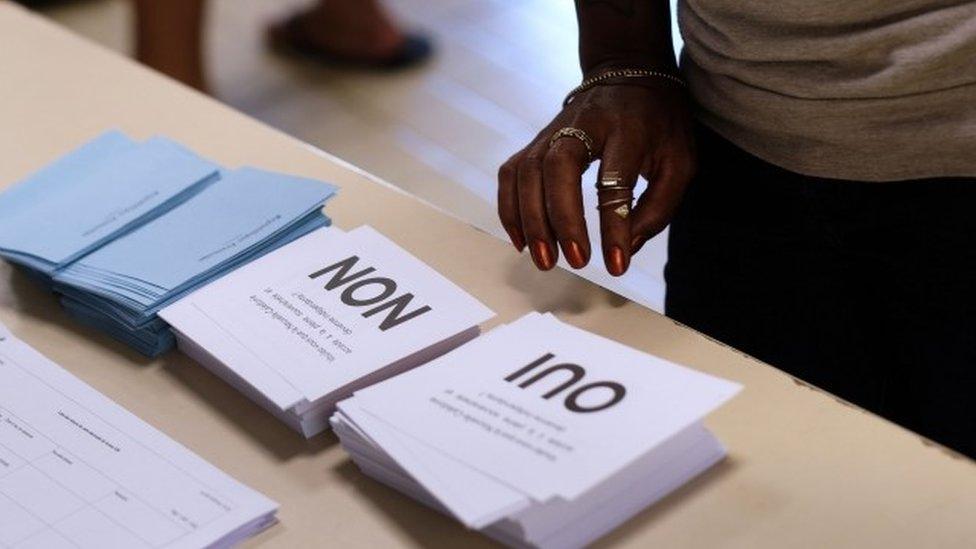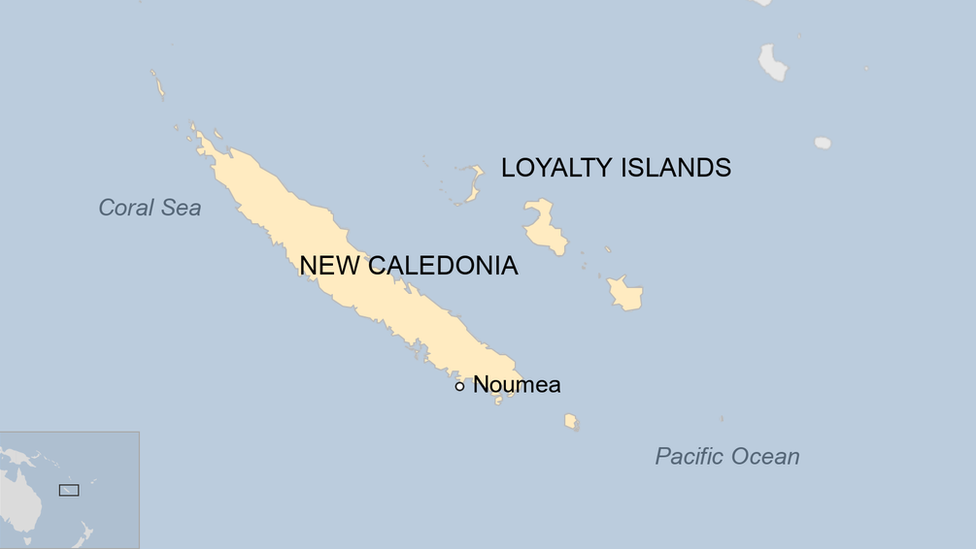New Caledonia referendum: South Pacific territory rejects independence from France
- Published

Turnout in the referendum was high
People in the French overseas territory of New Caledonia have narrowly rejected independence from France in a referendum.
The archipelago voted to remain French with 53.26% of votes, according to final results reported by AFP news agency. Turnout - at 85.6% - was high.
In a similar vote two years ago, the margin was slightly wider, with 56.7% voting to stay French.
New Caledonia has been a French territory for nearly 170 years.
French President Emmanuel Macron welcomed the result as a "sign of confidence in the republic", adding he also felt "humility" in view of the results.
Allow X content?
This article contains content provided by X. We ask for your permission before anything is loaded, as they may be using cookies and other technologies. You may want to read X’s cookie policy, external and privacy policy, external before accepting. To view this content choose ‘accept and continue’.

The referendum was part of a series of votes agreed two decades ago, following bouts of violence in the 1980s over the issue of independence between the islands' indigenous Kanak people and descendants of European settlers.
Kanaks represent around 40% of the population, while Europeans, mostly born in the territory, make up about a third. Others come from other Pacific islands or are of mixed heritage.

Kanak independence supporters wave flags after the referendum on independence in Nouméa, the territory's capital
Several agreements were signed including the 1998 Noumea Accord, which set out a roadmap for greater autonomy for the territory.
Under this agreement, New Caledonia is allowed up to three referendums on independence. A third referendum can take place by 2022, if requested by a third of the local assembly.
New Caledonia has large deposits of nickel, a vital component in manufacturing electronics, and is seen by France as a strategic political and economic asset in the region.
It enjoys a large degree of autonomy but depends heavily on France for matters like defence and education and still receives large subsidies from Paris.
It is one of the UN's 17 "non-self governing territories", external - where the process of decolonisation has not been completed.
France first claimed the islands, home to some 270,000 people, in 1853.

- Published4 November 2018

- Published24 May 2024
